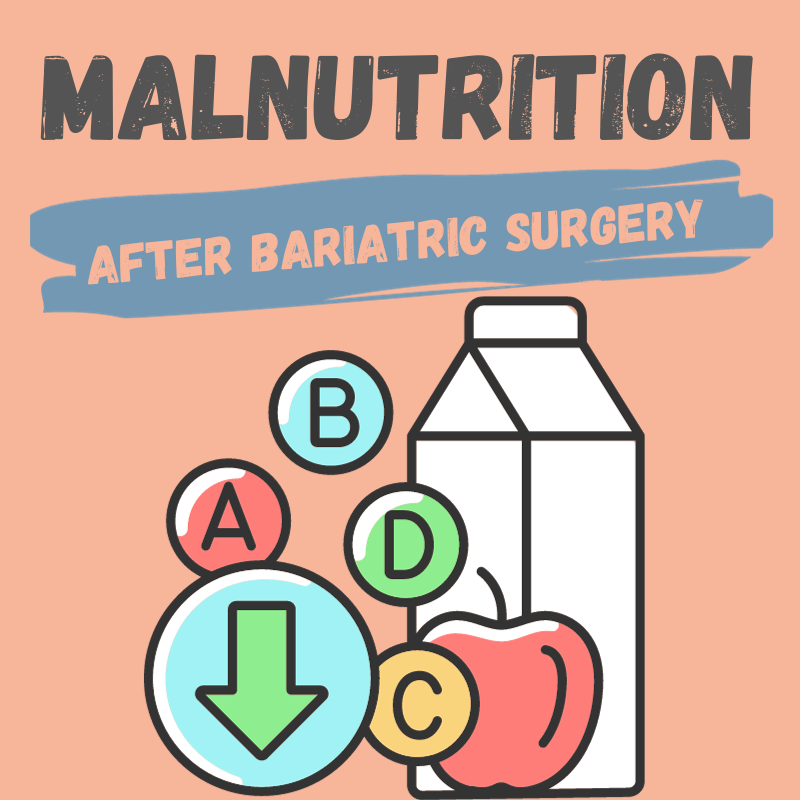Your cart is empty
The Role of Bariatric Food in Post-Surgery Nutrition

The Need for Bariatric Food
Bariatric surgery has a profound impact on the body's ability to consume and process food. The adjustments to the digestive system - including reduced stomach size and alterations in nutrient absorption - necessitate a specialized approach to nutrition. Here, the science of bariatric food becomes essential.
- Volume Limitations: One of the most significant changes post-surgery is the reduction in stomach size. The smaller stomach capacity limits the volume of food that can be consumed at one time. Eating large quantities can lead to discomfort, nausea, or even vomiting. Bariatric food is designed with these limitations in mind - it's nutrient-dense, meaning that small portions can deliver the necessary vitamins, minerals, and protein, without overfilling the stomach.
- Altered Nutrient Absorption: Bariatric surgeries such as the gastric bypass can also affect the body's ability to absorb nutrients, leading to potential deficiencies. Bariatric food is specially formulated to address this issue. It is often fortified with essential nutrients that are commonly deficient after surgery, like iron, vitamin B12, and calcium, ensuring the body gets what it needs even with altered absorption.
- Managing Digestive Complications: Some patients may experience digestive issues post-surgery, including 'dumping syndrome' where food moves too quickly from the stomach to the small intestine. This condition is often triggered by high-sugar or high-fat foods. Bariatric foods are typically low in sugar and fat, helping to manage and prevent such complications.
- Supporting Weight Loss: The primary goal of bariatric surgery is to help individuals lose weight. To support this, bariatric foods are formulated to be low in calories but high in protein. Protein not only supports healing post-surgery, but also aids in preserving muscle mass during rapid weight loss. This balance supports healthy, sustained weight loss.
- Promoting Healthy Eating Habits: Finally, bariatric foods help promote long-term dietary changes that support weight maintenance. By offering portion-controlled, nutrient-dense options, they help patients adjust to eating smaller quantities and choosing more nutritious options, which are habits necessary for long-term success post-surgery.
| Considerations Post-Surgery | Role of Bariatric Food |
|---|---|
| Volume Limitations | Nutrient-dense to provide necessary vitamins, minerals, and proteins in small portions, aligning with the reduced stomach capacity |
| Altered Nutrient Absorption | Fortified with essential nutrients (like iron, vitamin B12, and calcium) to counteract potential deficiencies due to altered absorption |
| Digestive Complications | Typically low in sugar and fat to help manage and prevent complications such as 'dumping syndrome' |
| Weight Loss Support | Formulated to be low in calories but high in protein to support healing, preserve muscle mass during weight loss, and promote sustained weight loss |
| Promoting Healthy Eating Habits | Provides portion-controlled, nutrient-dense options to help patients adjust to eating smaller quantities and choosing more nutritious options for long-term success |
The need for bariatric food arises from the significant alterations in the body's eating capacity and nutrient absorption post-surgery. These foods, backed by nutritional science, are designed to provide the right balance of nutrients, manage potential complications, support weight loss goals, and encourage long-term healthy eating habits.
The Science Behind Bariatric Food
Bariatric food is meticulously crafted to support the unique dietary needs of individuals post-bariatric surgery. It addresses several key areas:
- High Protein Content: After bariatric surgery, the body needs ample protein to help heal wounds, preserve muscle mass during rapid weight loss, and maintain normal bodily functions. However, the reduced stomach size limits the amount of food one can consume. Bariatric foods are thus designed to be protein-dense, providing a high amount of protein per serving. This includes options such as lean meats, low-fat dairy products, and plant-based protein sources, allowing individuals to meet their protein needs without exceeding their limited calorie intake.
- Low in Sugar and Fat: Bariatric food is intentionally low in sugar and fat. Consuming high-sugar or high-fat foods after surgery can lead to "dumping syndrome," where food moves from your stomach into your small bowel too quickly. This condition can cause unpleasant symptoms like nausea, vomiting, flushing, light-headedness, and diarrhea. By limiting sugar and fat content, bariatric foods help minimize the risk of dumping syndrome, allowing for a smoother recovery process.
- Vitamin and Mineral Fortification: Changes in the digestive system after bariatric surgery can lead to deficiencies in certain vitamins and minerals. This is because the surgery alters parts of the digestive system responsible for absorbing these essential nutrients. Therefore, bariatric foods often include fortification with vitamins and minerals. Common examples are iron, calcium, vitamin B12, and vitamin D. This fortification helps prevent deficiencies and supports overall health during the weight loss process.
- Dietary Fiber: Bariatric food is designed with an emphasis on dietary fiber. High fiber foods are more filling and help manage hunger and satiety levels, which is crucial for weight management post-surgery. Fiber also aids in digestion and helps prevent constipation, a common post-operative concern.
- Portion Control: Portion control is a critical aspect of bariatric food. After surgery, the stomach's size is significantly reduced, limiting the amount of food a person can comfortably eat at one time. Bariatric food products are often available in portion-controlled servings, helping individuals manage their calorie intake effectively without the risk of overeating.
- Hydration: Hydration is crucial after bariatric surgery. However, because the stomach size is reduced, patients can't drink large amounts of fluids at once or during meals. Bariatric food considers this aspect, often including options that contribute to hydration or are easy to consume with adequate fluids throughout the day.
- Palatability and Variety: While meeting all the nutritional needs, bariatric food also focuses on taste and variety. Maintaining a diverse and flavorful diet is crucial for long-term adherence to dietary changes post-surgery.
The science behind bariatric food involves a comprehensive understanding of nutritional needs, digestive changes, and dietary limitations post-surgery. It's a delicate balance of ensuring nutrient density, maintaining portion control, preventing deficiencies, and promoting palatability, all while supporting the overall goal of sustainable weight loss and health improvement.
Role of Bariatric Food in Post-Operative Care
The food consumed after bariatric surgery plays a crucial role in recovery and long-term health outcomes. Bariatric food, specifically designed to cater to the needs of post-surgery patients, plays several important roles:
- Promotes Healing: After bariatric surgery, the body needs adequate nutrition to heal. High-quality protein sources found in bariatric food support wound healing and tissue regeneration. Furthermore, micronutrients, such as vitamins A, C, and zinc, also contribute to the healing process.
- Supports Weight Loss: The primary goal of bariatric surgery is to aid in significant weight loss. Bariatric foods, by virtue of their high protein, low fat, and low sugar content, support this goal. They provide the necessary nutrients within a reduced calorie limit, facilitating weight loss while maintaining nutritional balance.
- Prevents Nutritional Deficiencies: Bariatric surgery often alters the digestive system's ability to absorb certain nutrients, leading to potential deficiencies. Fortified bariatric foods can prevent these deficiencies by supplementing the diet with essential vitamins and minerals. This is particularly important for nutrients like vitamin B12, vitamin D, iron, and calcium, which are commonly affected after surgery.
- Manages Symptoms of Dumping Syndrome: As mentioned earlier, high sugar or fat intake post-surgery can lead to dumping syndrome, a condition with unpleasant symptoms. By providing food options low in sugar and fat, bariatric food helps manage and prevent these symptoms, improving the quality of life for post-operative patients.
- Aids in Digestion: With the reduction in stomach size, digestion can become a challenge post-surgery. Bariatric foods are often high in fiber, which aids digestion and helps maintain bowel regularity. This is particularly beneficial in preventing constipation, a common concern after surgery.
- Facilitates Dietary Transition: Post-surgery, patients undergo a dietary transition, moving from liquids to purees, then to soft foods, and finally to regular foods. Bariatric food products are designed to support this transition, offering suitable options for each stage that meet nutritional requirements and are easy to digest.
- Encourages Long-term Dietary Adherence: Bariatric food not only serves immediate post-operative needs but also aids in establishing long-term healthy eating habits. By offering portion-controlled meals and snacks, it helps patients get accustomed to smaller serving sizes, which is critical for maintaining weight loss in the long run.
Bariatric food is carefully designed to address the unique dietary needs and challenges of individuals after bariatric surgery, promoting healing, supporting weight loss, preventing nutritional deficiencies, and facilitating a smooth and healthy dietary transition.
Author: Allison Allison, a certified nutritionist and author, brings over 15 years of experience in the health and weight loss industry. With a passion for guiding individuals towards their goals through nutrition and exercise, she has worked with diverse clients, fostering positive changes in their diet and lifestyle. Allison's influence extends through her authorship of multiple health and wellness blogs, where she shares expertise on topics including healthy eating, weight loss, bariatric medicine, and exercise. Through her writing, she aspires to inspire and empower readers to prioritize their health and thrive. |
Reviewed By: Dr. K. Huffman Dr. Kevin D. Huffman, D.O., is a board-certified bariatric physician renowned for his expertise in treating obesity. With over 10,000 patients and a reputation as a national leader in bariatric medicine, he has trained hundreds of healthcare providers. As the founder of American Bariatric Consultants, Dr. Huffman develops protocols and training materials sought after by medical societies, pharmaceutical companies, patients, and hospitals. His contributions extend beyond patient care, as he prepares physicians for board certification and expands access to this crucial form of treatment. |
Bariatric Guides & Information
More Info
- Choosing a selection results in a full page refresh.


















